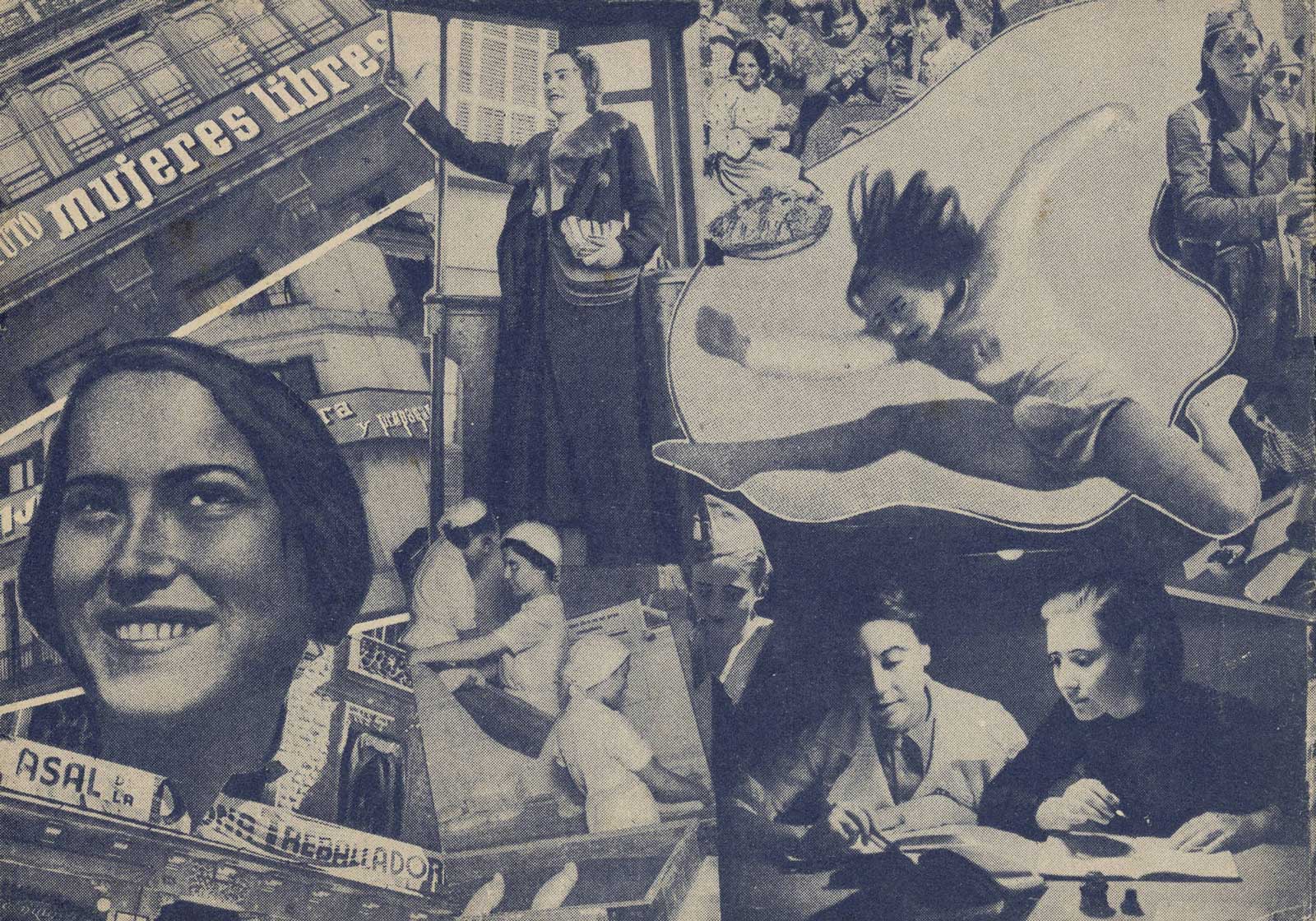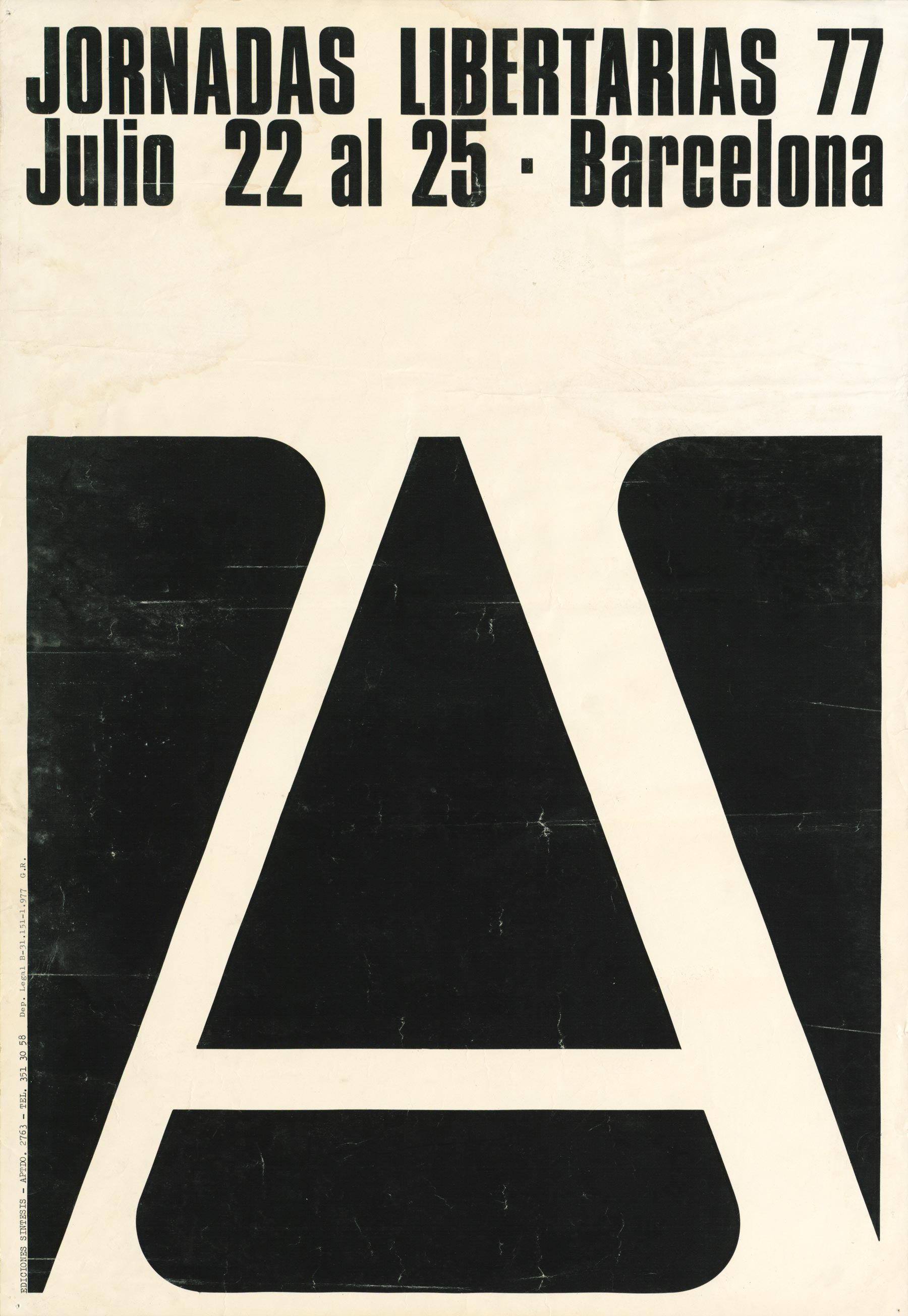1977: the very brief summer of anarchy
Presentation of the research project ‘Workers' and Anarchist Graphics’
19.07.2017
Observatori de la Vida Quotidiana
Wednesday 19 July, 19 h. Virreina LAB
Free entrance. Limited places
Workers’ and Anarchist Graphics (1870-1979) is an interdisciplinary research project promoted by La Virreina Centre de la Imatge which aims to make public and fully explore the richness of the visual and iconographic production of anarchism in the 20th century through a vast programme of activities.
Barcelona is one of the places around the world where anarchism has been a really important movement politically, socially and culturally. And if this city is today a referent in the history of the workers’ movement, this is largely due to the intensity of the social conflict, a fire stoked mainly by the anarchists from the last third of the 19th century to the end of the Spanish Civil War. Despite the many attempts over time to silence it, literature on the libertarian movement is very abundant both nationally and internationally. Its voices have never fallen silent.
However, the history of anarchism is a wounded history with its eyes blindfolded. Comprehensive and global research to recover the impressive graphic legacy of the libertarian movement has not been undertaken until now. The graphic history of anarchism is a pending subject, and the scant knowledge we have about its unrivalled editorial production—hundreds and hundreds of publications over decades—and its cartoonists, poster artists, cover designers, photographers and filmmakers is a flagrant example of the veiled image. Another example of the many areas of omission with which the official memory of the city has been built over time.
The presentation of the research will take the form of a joint conversation about the summer of 1977, a moment marked by the passionate attempts to rebuild the movement with two major events: the CNT’s meeting held on Montjuïc and the Libertarian Conference of Park Güell and the Saló Diana.
Forty years after that intense—and fleeting—libertarian risorgimento, we will talk about its high and low points with:
- Manel Aisa (Ateneu Enciclopèdic Popular)
- Ángel Bosqued (Fundació Salvador Seguí)
- Canti Casanovas (La Web Sense Nom)
- Pep Castells (ex member of the Construction Trade Union of the CNT)
- Tomás Ibáñez (Moviment Llibertari)
- Paco Madrid (anarchist)
- Pau Martínez (historian)
- Iru Moner (Moviment Llibertari)
- Nazario (Nazario)
- Pepe Ribas (Ajoblanco)
- Paco Ríos (filmmaker)
- Carles Sanz (Fundació d’Estudis Llibertaris i Anarcosindicalistes)
- Sonia Turón (secretary of Culture of the CNT)
The Observatori de la Vida Quotidiana (OVQ) is an independent and transdisciplinary group coordinated by anthropologist Andrés Antebi and historian Pablo González that has been working on historical and ethnographic research projects in the city of Barcelona since 1999. Its main objective is to combine the tools of social research with the evocative potential of the graphic and visual arts. In recent times its work explores issues as diverse as social struggles, the history of graphic reporting, Barcelona’s colonial footprints and the collaborative construction of the historical memory of neighbourhoods using popular photography collections.
In collaboration with: Ateneu Enciclopèdic Popular, Fundación Anselmo Lorenzo, Fundació Salvador Seguí





